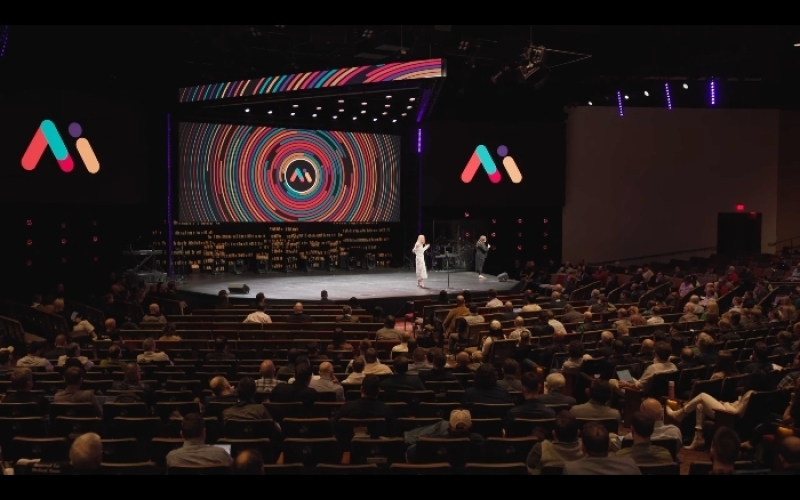
The Missional AI 2025 summit welcomed over 500 participants from more than 100 organizations across 30 countries last week at One Community Church's Plano campus in this Dallas suburb.
Themed “AI Collision — Shaping the Future Together,” the three-day conference brought together AI professionals, church leaders, and mission advocates to discuss ethical AI, theology, technology, and AI's role in the Church.
Among the speakers was Pat Gelsinger, former CEO of Intel and chairman of Gloo, a leading partner of the event, along with David Kinnaman, CEO of Barna Group, and leaders from Google DeepMind, Meta's NLLB AI division, McKinsey, MasterWorks, and the TV show "The Chosen."
A notable panel titled "The Sweet Smell of Data: Fertilizing the Work of Bible Translators with AI," featuring developers Daniel Wilson and Jacob Bullock, focused on leveraging data to enhance the work of Bible translators using AI. They also discussed the emerging tension between human effort and technological advancement, as well as the role of the Holy Spirit in this process.
Wilson commented, “I think that ultimately, God and the Holy Spirit work through the Church, through people to translate the Bible,” describing AI as a supportive tool.
He explained, “What we're trying to do here with these models… is that we're trying to build a model that is a model of the translation team. It's a model of people. It's a model of the decisions and the style, the way that the team would translate the Bible... It's assisting the translation team, but at the heart of this, it's the team, it's the people in it, that the technology is there to help.”
Bullock, a biblical scholar and linguist, agreed and added, “I want to pull it back to our title and the metaphor of data as fertilizer, because the heart of a translation project is always people. It's always the language community, it's always the translators, and so yes, absolutely they can and often are filled with the spirit of God. So what we're doing is not replacing that reality. We are fertilizing it.”
He believes that by eliminating or reducing “drudgery” aspects of the translation process, resources will ultimately be freed up to focus on the more spiritual elements of translation.
Innovations for Bible translation were also introduced at the summit, including XRI’s offline AI device for remote translation, which allows missionaries to translate the Bible in hostile regions without detection.
Meanwhile, Richard Zhang, a researcher with Google DeepMind, reflected during his keynote address on the need for Christians in the AI development field to better define the conversation surrounding AI and some of life’s most significant questions.
Zhang highlighted the application of large language models—the technology driving the generative AI boom—as a new kind of “judge” that employs reasoning processes called “chain of thought” to evaluate outputs. He envisioned a “reasoning revolution” on the horizon that would ultimately deepen our understanding of God.
He stated, “As our reasoning capabilities become cheaper and we no longer idolize people who are smart… I believe it'll all point to Jesus.” Zhang elaborated, “As intelligence gets cheaper, I believe it'll humble us, it'll make us become truly desperate for God in a way that will be almost uncomfortable.”
“Again this idea of blurring the lines between humanity, robots, and God… as we blur this line, we'll discover what really makes us Christian, what really gives us life and what really helps us to understand what it means to be made in the image of God.”

















